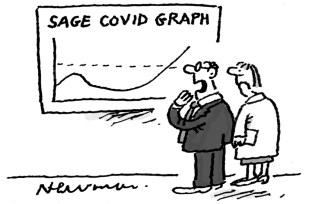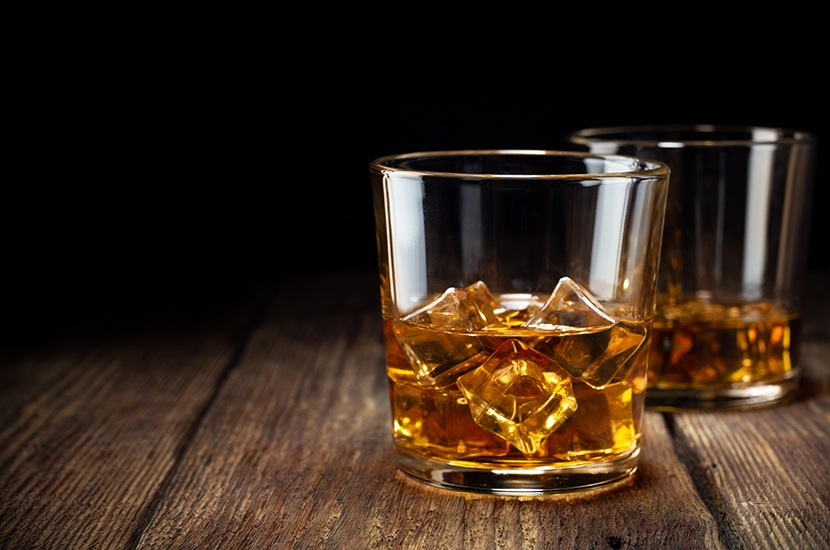At least in London, midwinter spring has not been entirely vanquished, and the trees are still a couple of strong winds away from losing their autumn glory. This will give the government some undeserved help. People can sit outside, and the view from windows is not too depressing. Before long, though, those indoors are likely be cursing the PM and his close associates: ‘sic a parcel of rogues in a nation’.
Burns and the onset of seasonal bleakness makes one think of the dark. In earlier times in Scotland, Hallowe’en was a characteristic festivity: an attempt to embrace the oncoming winter. Its theme was ghouls and witchcraft. Children, dressed as witches or warlocks, would go from house to house making sepulchral noises. Sometimes inventive parents would produce a hollowed-out turnip with eyeholes and a couple of candles: the sort of lantern a bogle, or evil spirit, would carry. ‘Turnip bogle’ passed into the language to mean an attempt by people who should know better to frighten people who should know better. On Hallowe’en, most grown-ups entered into the spirit and pretended to be scared, before rewarding the young revellers with fruit, sweets, a slice of cake and a little small change.

Innocent days, but Hallowe’en offers an insight into the Scottish religious psyche, which includes a strange blend of Puritan theology and pagan practice. Traditionally, the Scots were more at home with Hogmanay than Christmas: the Old Testament than the New. Hallowe’en was a long way from All Hallows’ Night. It was almost a Scottish Walpurgisnacht.
A group of expat Scots were discussing all this the other night (must have been before lockdown). We moved effortlessly from Islay to the Spey: from the glories of Burns to the follies of Boris. During the first lockdown, we had all more or less complied. Those who had occasionally defaulted — no names, no pack drill and I am pleading the Fifth — had felt guilty while doing so, though no one came to any harm. This time, there was talk of setting up speakeasies. Someone suggested that we should call them ‘shebeens’, thus placing ourselves under the protection of Black Lives Matter. Scorn was heaped on the government’s hapless attempt to produce accurate figures.
We moved effortlessly from Islay to the Spey: from the glories of Burns to the follies of Boris
Sir David Norgrove, of the UK Statistics Authority, is everything a senior public servant ought to be: able, conscientious and of impeccable integrity. He would not have criticised the government without coming to the reluctant conclusion that it was his duty. All this is getting through to the public. They may not understand the R number or the difference between Imperial and Oxford. They may not have come across the phrase ‘turnip bogle’, but they can recognise one when they see it. They can also decide that this government can no longer tell its Rs from its elbow.
Unless people start dropping dead in the street, in which case the PM will be entitled to deafen his critics with a resounding ‘I told you so’, the government would be insane to extend the lockdown beyond 2 December. Civil disobedience does not come easily to the English. They would rapidly learn.
Before the whisky, our group had been drinking relatively modest bottles from the Famille Perrin. They make a range of delicious wines in the Rhône and the Luberon. Their ordinary wines are excellent value; their exceptional ones worth the money. Suddenly our host appeared with a couple of open bottles. ‘I know: it’s too late to bring out the good stuff, but what the hell.’ What the heaven would have been more appropriate. These were two bottles of Beaucastel Hommage à Jacques Perrin, 2015. Suddenly, it did not matter that our palates had seen better hours or that lockdown was imminent. This was a magnificent wine.






Comments